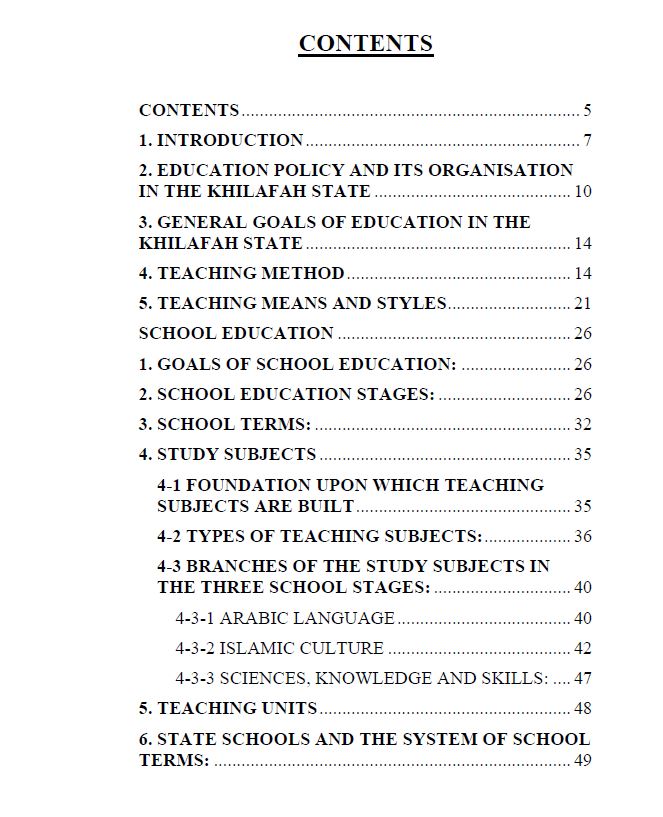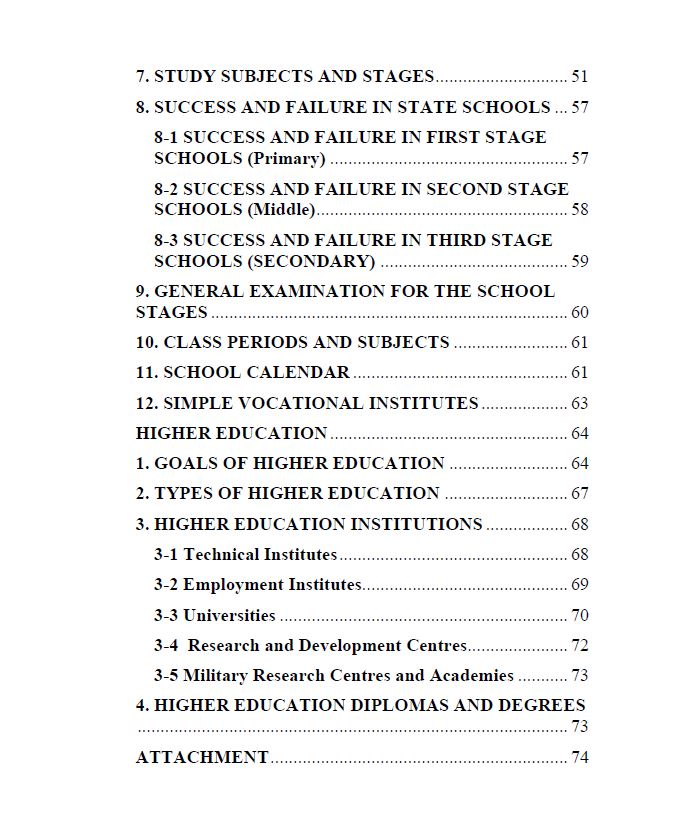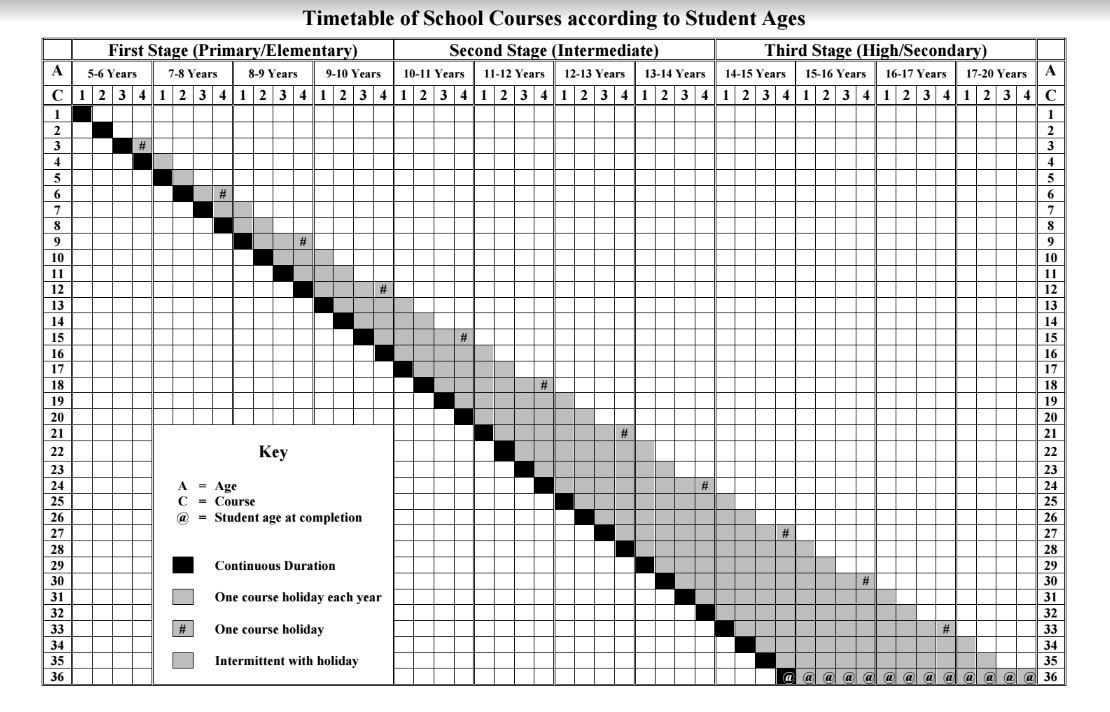بسم الله الرحمن الرحيم
FOUNDATIONS OF THE EDUCATION CURRICULUM
IN THE KHILAFAH STATE
Hizb ut Tahrir
Timetable of School Course according to Student Ages:
1. INTRODUCTION
The culture (thaqafa) of any nation is the backbone of its existence and survival. Based on this culture, the Ummah’s civilisation (hadhara) is founded, and its goals and objective are defined, and its way of life is defined. The individuals of the Ummah are moulded by this culture in one melting pot such that the Ummah becomes distinguished from the other nations. This culture is: The Ummah’s intellectual doctrine (‘aqeedah) and the rules, solutions and systems emanating from this intellectual doctrine. It is also the knowledge and sciences built upon it, as well as the events linked to this intellectual doctrine such as the Ummah’s conduct (Seerah) and history. If this culture is wiped out, this Ummah, as a distinct Ummah, would disappear; thus its objective and way of life would change, and its allegiance would shift, and it would stumble in its path following other nations’ cultures. The Islamic culture is the knowledge (ma’arif) stimulated by the Islamic intellectual doctrine. This is regardless whether this knowledge includes the Islamic doctrine like the science of “tawheed”; or is built upon the intellectual doctrine such as jurisprudence (fiqh), exegesis (tafseer) of the Qur’an, and the Prophetic traditions (hadith); or whether it is a prerequisite to understand the rules emanating from the Islamic intellectual doctrine such as the knowledge required for ijtihaad (scholarly exertion) in Islam, such as the sciences of the Arabic language, classification of the Prophetic traditions (mustalah al-hadith), and the science of the foundations of jurisprudence (Usul). All of this is Islamic culture because the Islamic intellectual doctrine is the motive for its research. Similarly the history of the Islamic Ummah is a part of its culture due to what it contains of news about its civilization (hadhara), men (rijal), leaders and scholars. Pre-Islamic Arab history is not part of Islamic culture whereas pre-Islamic Arab poetry can be considered part of this culture due to what it contains of evidences that help understanding of the words and syntax of the Arabic language, and consequently help in the making of ijtihaad, tafseer of the Qur’an and understanding hadith.








